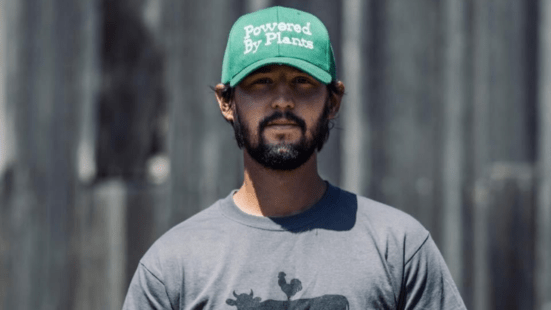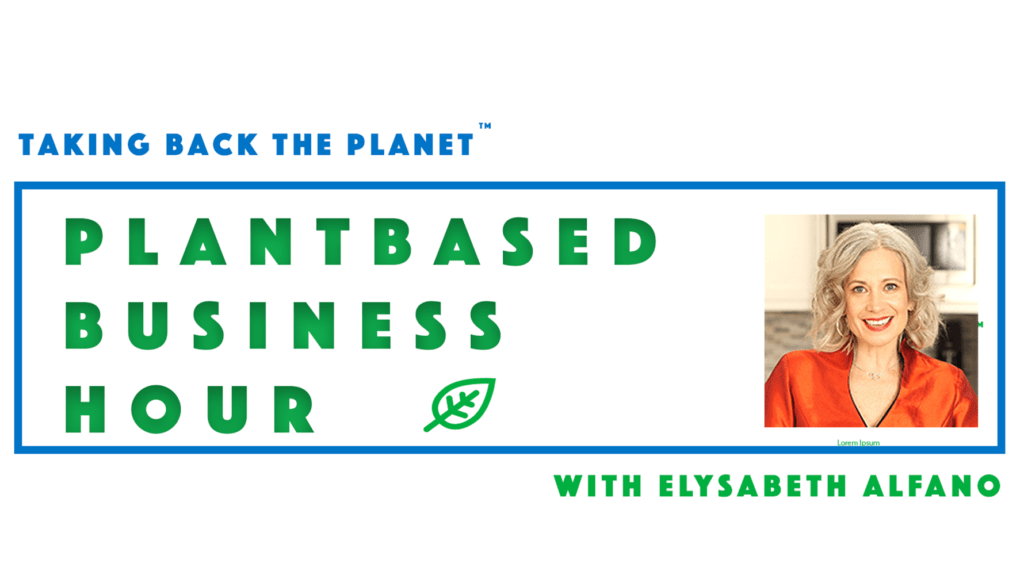
How can we shift the food system to get animals out of the supply chain, even down to manure? I talk to Nate Salpeter of Sweet Farm about AgTech, his sense of purpose for helping to shift the food supply system and his work with veganic farming. Enjoy this episode of The Plantbased Business Hour.
We discuss,
1 How does Nate switch between nuclear engineering and Sweet Farm, a veganic farm, sanctuary and foundation?
- What is veganic farming?
- What are the newest advancements in AgTech?
- How do farmers fit into an AgTech farming world?
- Can Impact investing in AgTech foster a complete systems change?
A highlight clip and transcription from our long-form conversation is below.
Elysabeth: Who better to talk about farming with than a nuclear engineer? He also happens to be the founder of Sweet Farm and the Sweet Farm Foundation. I want to bring on my guest today, Nate Selpeter. I’m glad to have you with me.
Nate Salpeter: A lot of people who have even been plant-based or vegan for their entire adult lives don’t realize that plant-based agriculture, including especially organic agriculture, is largely propped up by animal agriculture. So, fertilizers for instance, largely come from bone meal, blood meal, feather meal, fish meal, or manure, right? Those products come directly out of animal exploitation. So, what Sweet Farm does is we have a practice called veganic agriculture. We are learning an incredible amount through this process. In many ways we’re taking a page out of the Rodale Institute in terms of setting up experiments of how this is working, and this is not. That is valuable information we can share.
Elysabeth: I think you’ve sort of dropped a bomb on people. A lot of people don’t realize that their plants-and that means their plant-based foods-are grown with animal manure and that animal manure is coming from factory farmed animals. That’s where it gets made if you will, for lack of a better expression, and then turned into manure. So if you are doing veganic farming, tell me then where are you getting your nitrogen source exactly?
Nate Salpeter: Yeah, absolutely. So, this is a really fun one. A couple of places. One is cover cropping which is a well established process by which during the off season you’re planting legumes and other nitrogen fixing crops, so your winter rye and your bell beans and other things on the ground, which you then work back into the soil so that you can cut it and then lay it down in ground mulch.
We don’t do spraying and we’re not using harsh chemicals or herbicides out here. So, that helps in that regard. For our compost program we actually integrate in the shavings from our barns. Our animals have bedding in their barns so that adds a carbon source. We also integrate in something called biochar.
Humans are a part of the ecosystem believe it or not. There are 7.8 billion people on this planet and, for whatever reason, people have started to draw the boundary of a plant-based ecosystem with just the plant. They say, “Okay, here’s the plant. Here are the nitrogen sources in it.” But what’s not accounted for is that fact that humans are going in and picking the tomato, eating the tomato, and then guess what? We have our own outputs, as well.
So, bringing it back to our nitrogen source now, BioForceTech, is an amazing company. They created a self-sustaining process that can do what’s called pyrolyzing this biomass. They can do it in a way that is carbon negative. So, you take the biomass out of the wastewater treatment, you burn it at a very high temperature with a very low oxygen content, and it turns one hundred tons of biomass into one ton of biochar and it breaks down all of the pharmaceuticals, all of the pathogens, all of the perfluoro alcohols, the non-stick coatings on your pans; all of that becomes carbon, nitrogen, phosphorus, constituent elements, right, benign elements at that point.
And the carbon source becomes a great water retention device when integrated into the soil. It absorbs nitrogen from your compost pile and then releases it more slowly. It also provides a little micro hotel for the beneficial micro rhizobium that help with root communication and nutrient transfer within the ground. So we did the very first field trials and we’ve been helping them grow and expand as a company and integrate into municipalities all over the country and world.
Elysabeth: I think what I’ve taken away from this, and, of course, I’ll have more questions, but we can repurpose some of these awful chemicals, which we need to do anyway, and use them to our own benefit. In addition, we ourselves have an output so there are other options than animal manure.

New episodes are out every week. Never miss the Plantbased Business Hour or Minute. Subscribe on iTunes and Youtube, and sign up for the newsletter. Follow Elysabeth on Linkedin. Join the Plantbased Business Breakfast Thursdays at 9a PT on Clubhouse. For information on Plant Powered Consulting, click here.



